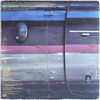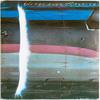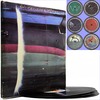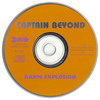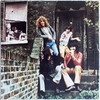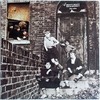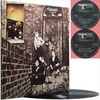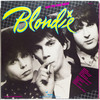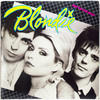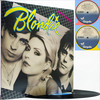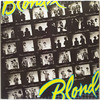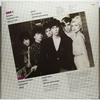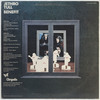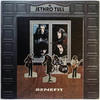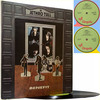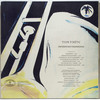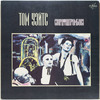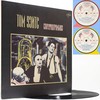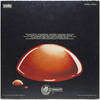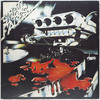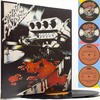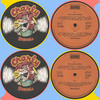Label: MPL Communications (UK), PCSP 720 0C 154-98497/8/9
Style: Classic Rock
Country: London, United Kingdom
Time: 43:20, 32:50, 40:06
Format: Flac Tracks 16/44,1 kHz
Size: 280, 212, 268 Mb
This year's premiere U.S. tour by Paul McCartney's post-Beatles group
was one of the best-attended and best-put-together concert jaunts ever
mounted. McCartney is one superstar who instinctively understands the
importance of adding entertainment to live musical appearances, and his
painstaking mixes of tapes made all along the tour represent the many
original programming concepts in this show. The three disks are packaged
in a clever split double-pocket jacket with a poster taking up the
fourth compartment. Just about all the great songs written by McCartney
either for the Beatles or Wings can be found here in intensely performed
versions that cleverly take maximum advantage of the excitement of
playing before big arena audiences. One unique bonus found on this LP is
Wings guitarist Denny Laine, original singer of the Moody Blues
performing that group's early hit "Go Now," which was only in the show
at LA. But McCartney live with this well-honed group is an endless
fascination. He remains the ultimate pop-rocker whether singing with his
solo acoustic guitar, driving the group with his bass, rocking full-out
with the travelling horn quartet or riffling off piano arpeggios for
his haunting ballads. No LP in the future is likely to deliver us this
much of McCartney in so many effective settings. Best cuts: "Jet," "Band
On The Run," "Magneto & Titanium Man," "Silly Love Songs," "Let 'Em
In," "Blackbird," "Yesterday," "Live And Let Die," "Lady Madonna,"
"Listen To What The Man Said," "Long And Winding Road ," "Hi Hi Hi,"
"Richard Cory."
(Billboard, 1976)
For such an expensive,
three-record concert souvenir, made by an artist as commercially astute
as Paul McCartney, a consumer-conscious review seems appropriate. The
Wings fan with all the studio albums, for instance, may find Wings over
America a legitimate alternative; excepting the single side of acoustic
material, these performances are rawer and more driven than the original
recordings and, in many cases, much the better for it. "Rock Show" is
placed in its natural habitat; "Magneto and Titanium Man" becomes more
sinewy and sinister; "Time to Hide" is reborn and simply wonderful.
"Soily," the encore original, is a perfect climax, one of the best fast
songs McCartney has written. In other words, there is probably enough
novelty here to make Wings over America worth owning. From the above,
non-Wings fans -- particularly those who find them wimpy -- can infer
that this is as good and tough as you'll get this particular band.
On
the debit side, the acoustic set is unremittingly maudlin. Many of
Wings' mediocre songs -- "My Love," "Listen to What the Man Said,"
"Silly Love Songs" -- successfully resist transcending mediocrity.
There
isn't much stage patter; crowd noise is kept at an unobtrusive but
effective level; the cover painting compares favorably to a witty James
Rosenquist, but the poster inside is downright cheesy. Caveat emptor.
(Ken Tucker, Rolling Stone, 2/10/77)
Wings Over America - Triple Live album, with Poster (pictures are included):
Wings
over America is a live album by the band Wings, released in December
1976 on MPL Communications (in the US, it was released by MPL
Communications and Capitol). In its initial release, it was a triple
album and included a poster of the band, which reached number 8 in the
UK charts and peaked at number 1 in the US. The cover was designed by
Hipgnosis, and features a painting of an airliner about to open its
cabin door.
Wings over America was another success for Wings,
reaching number 1 in the US in early 1977 (the last in a 5-album stretch
of consecutive number 1 albums for Wings) and number 8 in the UK. For
the five Beatles songs included, McCartney elected to reverse the
songwriting credit to McCartney?Lennon.
Linda McCartney - backing vocals, piano, keyboards, percussion
Denny Laine (ex Moody Blues) - lead vocals on "Spirits of Ancient Egypt", "Picasso's Last Words (Drink to Me)," "Richard Cory," "Time to Hide", and "Go Now" and backing vocals, acoustic, electric and bass guitars, piano, keyboards, percussion, harmonica
Jimmy McCulloch (ex Thunderclap Newman, Stone The Crows) - lead vocals on "Medicine Jar" and backing vocals; acoustic, electric and bass guitars
Joe English - backing vocals, drums, percussion
Tony Dorsey - trombone, percussion
Howie Casey - saxophone, percussion
Steve Howard - trumpet, flugelhorn, percussion
Thaddeus Richard - saxophone, clarinet, Western concert flute, percussion
LP1
LP2
LP3

